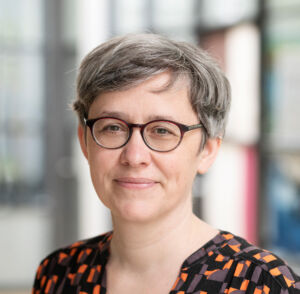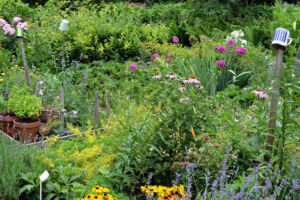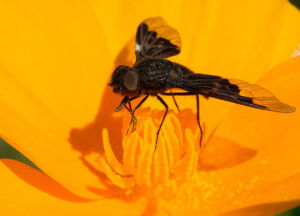Research approach
The aim of the project is to investigate the extent to which insect-friendly gardening practices (e.g., mulching, rainwater harvesting, composting) can be potential entry pathways for ecotoxicologically relevant substances for insects through the use of certain materials. To this end, in-depth ecotoxicological analyses are being conducted to determine the level of pollutant contamination in the gardens. In addition, supplementary surveys of gardeners are being conducted in combination with a linguistic study of semantic peculiarities to obtain information on possible entry pathways and motives for implementing insect-friendly practices.
In a final workshop, the results of the analyses will be presented to the garden owners surveyed and discussed together. These findings will then be used to develop concrete guidelines. These will offer gardeners practical recommendations for designing insect-friendly gardens, promote the implementation of sustainable gardening practices, and take into account the different requirements gardeners have for their gardens.
Background
The “Naturschutz selbstgemacht” (DIY nature conservation) project is a follow up of the “SLInBio – Urban Lifestyles and the Valorization of Biodiversity” research project. This project investigated how the perception and valorization of insects in urban areas can be increased, using Frankfurt am Main as an example. In order to obtain a comprehensive picture of gardening practices, attitudes, and knowledge on the subject of insect protection, scientific data on insect diversity was combined with social science surveys of garden owners. One surprising finding was that a large number of pollutants were found in some gardens, even when gardeners did not use pesticides. The project “Naturschutz selbstgemacht” (DIY nature conservation) builds on these findings, deepens the social-ecological interrelations, and develops concrete recommendations for insect-friendly gardening.
Research and project partners
- Goethe University Frankfurt am Main
- TU Darmstadt
Funding
The DIY Nature Conservation project is funded by private university funding from Goethe University Frankfurt am Main.
Contact:


